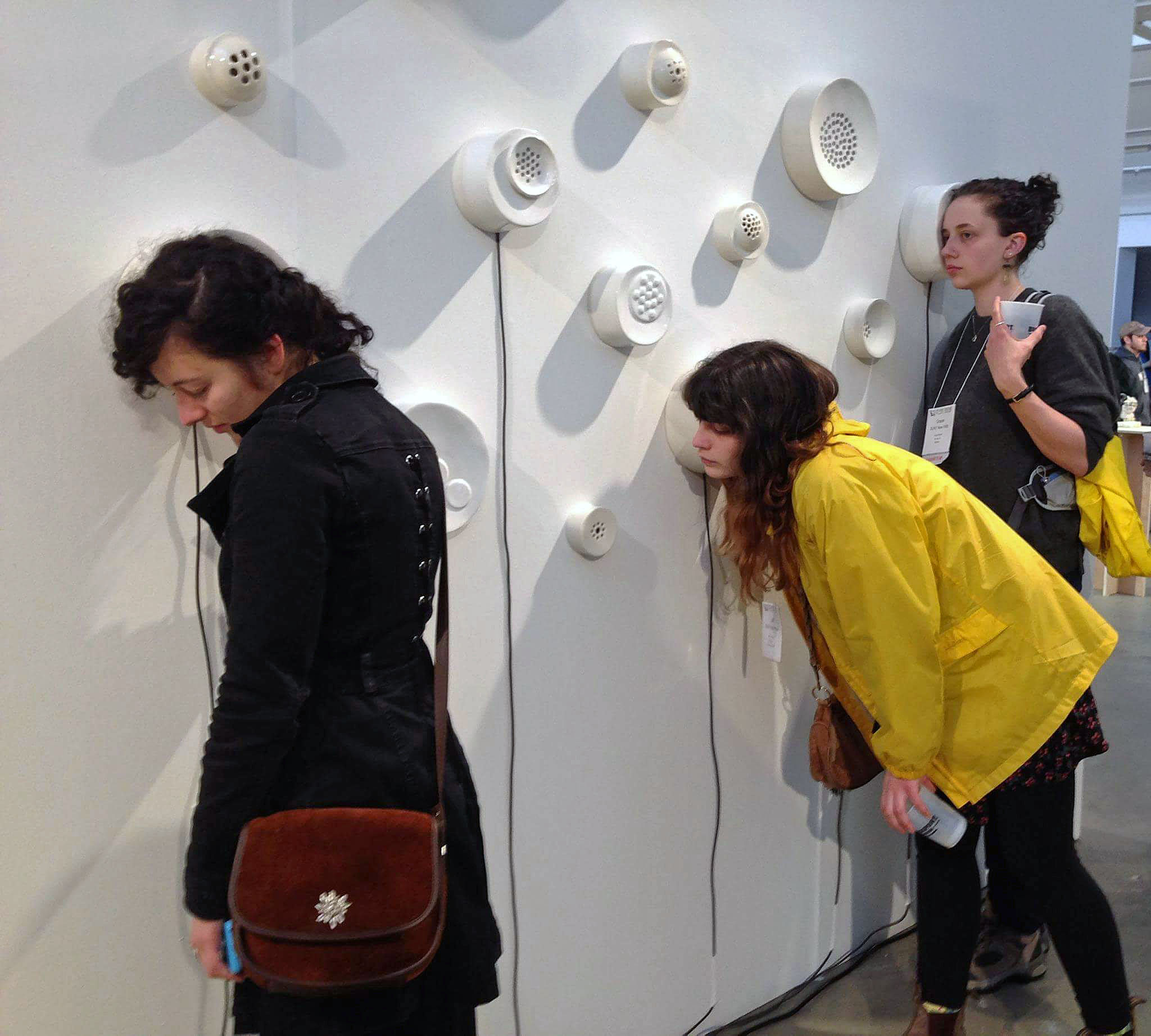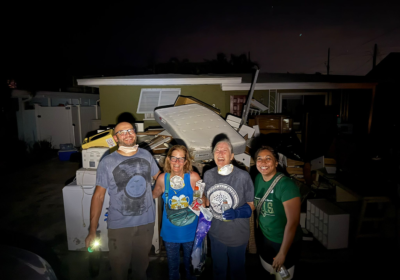WGS explores reproductive justice conversation through art

The USF Department of Women’s and Gender Studies (WGS) is taking the ongoing social issues concerning reproductive justice out of the classroom and into a public art exhibit.
The art exhibit can be found in CMC 202, on Monday-Friday from 1-5 p.m. It is free and open to the USF community and other interested members of the Tampa area.
It is presented by the Socially Engaged Craft Collective (SECC) and features work done by artists from cities in the U.S. all the way to Canada.
The art exhibit was a collaboration between WGS and Nicole Gugliotti, a Florida-based ceramic artist. She is known for incorporating issues of social and reproductive justice into her work.
Sarah Junke, the project coordinator of the exhibit, said that members of the WGS faculty were excited about Gugliotti’s work and the idea of an art exhibit grew from the discussions.
Junke also said the artwork and presentation are different than your average gallery.
“The exhibit is in a nontraditional gallery space,” Junke said in an email to The Oracle. “The artwork is tucked into glass cases and is on the walls in the lobby. There is a video of a performance piece that plays on a loop in the lobby, and in the Women’s and Gender Studies’ library space there is an interactive piece on the wall that has audio and video.”
Junke said the exhibit artwork pieces are diverse as well and will broaden people’s understanding of what is reproductive justice.
“The artists were asked to send us pieces that represented what reproductive justice means to them and the responses were very diverse,” Junke said. “Half of the work was created specifically for this exhibit.”
The art exhibit will not be remaining at USF for much longer as it will be closing down Feb. 5. Junke said it will be moving to other conferences such as the 2020 Southeastern Women’s Studies Association (SEWSA) conference in St. Pete.
Junke hopes that viewers gain awareness of how much reproductive justice affects us all.
“Reproductive justice touches us in so many ways,” Junke said. “It enriches the idea of reproductive rights to completely include marginalized and vulnerable members of our society. It holds feminism accountable to the fact that the movement often ignores issues that don’t directly affect white, middle-class or rich women. Reproductive justice centers on the experience of the marginalized and asks us to analyze and dismantle the systems that oppress us.”
Junke also stressed the importance the WGS department and USF had in mind when wanting to sponsor an event such as this, which was how this topic relates to society.
“The [WGS department] is committed to reproductive justice and given many of the changes that have been taking place in the past couple years in the U.S. in regard to this issue, it seemed particularly important to sponsor this exhibit,” Junke said. “Our hope is that the exhibit can raise awareness about what reproductive justice is and why it is important.”






